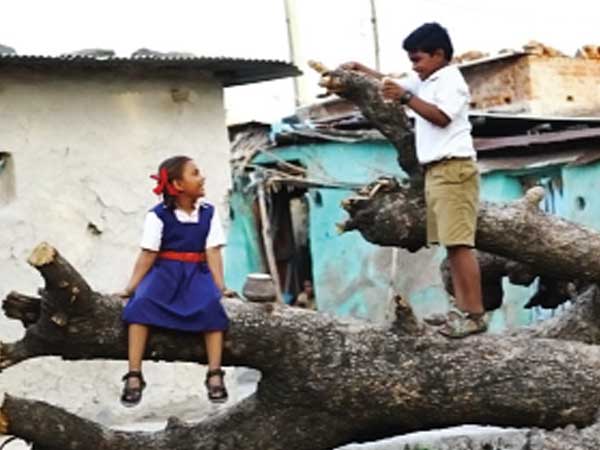
Inspired by the success of Iranian films, many of which tell simple stories revolving around children, Marathi cinema has consistently been looking at life through the eyes of children in films as diverse as Shwaas, Shala, Champion, Tingya, Fandry, Balak Palak, Yellow, Elizabeth Ekadashi, Killa to name just a few. These are not children’s films, even though the protagonists are kids. They look at social issues from the caste system, poverty, farmer suicides to education and mental health, with gripping stories told with the power of simplicity.
Many of them are set in villages, shot on actual locations with a cast of non-professional actors. The latest in the series is Pipsi, directed by Rohan Deshpande. It is set in the drought-stricken village of Rakh, where the lack of water is driving farmers to suicide on the one hand, on the other poor farmers are being enticed to sell their and to city dwellers for holiday homes. The government sends tankers of drinking water and cash to tide them over till the next monsoon, but the crisis is much bigger than the meagre help offered.
In a deeply affecting scene in the film, a car stops outside a humble home, man gets out and asks for water. The little girl in the house finds the earthen pot dry, and digs out a hidden bottle of the precious liquid to give the man, because rules of Indian etiquette dictate that a guest has to be offered water. The man callously pours the water into his car’s engine, while the child looks on in dismay.
But all these things happen on the periphery of the story of eight-year-old Chaani (Maithili Patwardhan) and her best friend Balu (Sahil Joshi). Chaani’s mother is seriously ill, and the doctor has given her three months to live. A sorrowful Chaani accompanied by Balu goes to every temple in the village and then hears a priest narrating a story about a king’s kindness to a fish that ends with him being rewarded. The kids conclude that every person’s soul lives in a fish, so the child is convinced that if she finds a fish that hold’s her mother’s soul and keeps it alive, her mother will not die.
The first problem is how to find a fish when all the streams in the village are dry. Chaani manages to find a living fish—a tiny black thing-- among a bunch lying in the kitchen to be cooked, and believes that is the fish she needs to save.
Putting the fish into a pot of water is easy, but it is tough to keep it alive without letting anybody except Balu in on the secret. It is upto Balu to filch packets of biscuits from his father’s shop to feed Chaai’s pet. When keeping the fish in her school water bottle has it chucked in the well, Balu, who has seen an aquarium in the realtor’s office tells Chaani it must be kept in a glass jar, which he steals again. The kids, whose hideout is an abandoned train bogie lying by the tracks, name the fish Pipsi after the sweet black drink they chug from bottles.
While Chaani and Balu are fixated on Pipsi, the water problem worsens, and her father is on the verge of starvation, feeding the little food he can scrape together to his cattle. But, miraculously, the mother’s condition improves and Chaani knows it’s not the medicine but her Pipsi scheme.
The film, with utterly affecting performances by the two kids, who never hit a false note and make no attempt to act cute, is as much a story of the neglected villages of Maharashtra, as a coming of age tale of the two kids. They have been living in their innocent fantasy bubble, dreaming of the trip their rust bucket train compartment will take them to, but eventually the world of grown-ups will claim them. Like it does Chaani’s solemn older brother. Their life does not promise a happy finale, just little moments of joy and hope.





